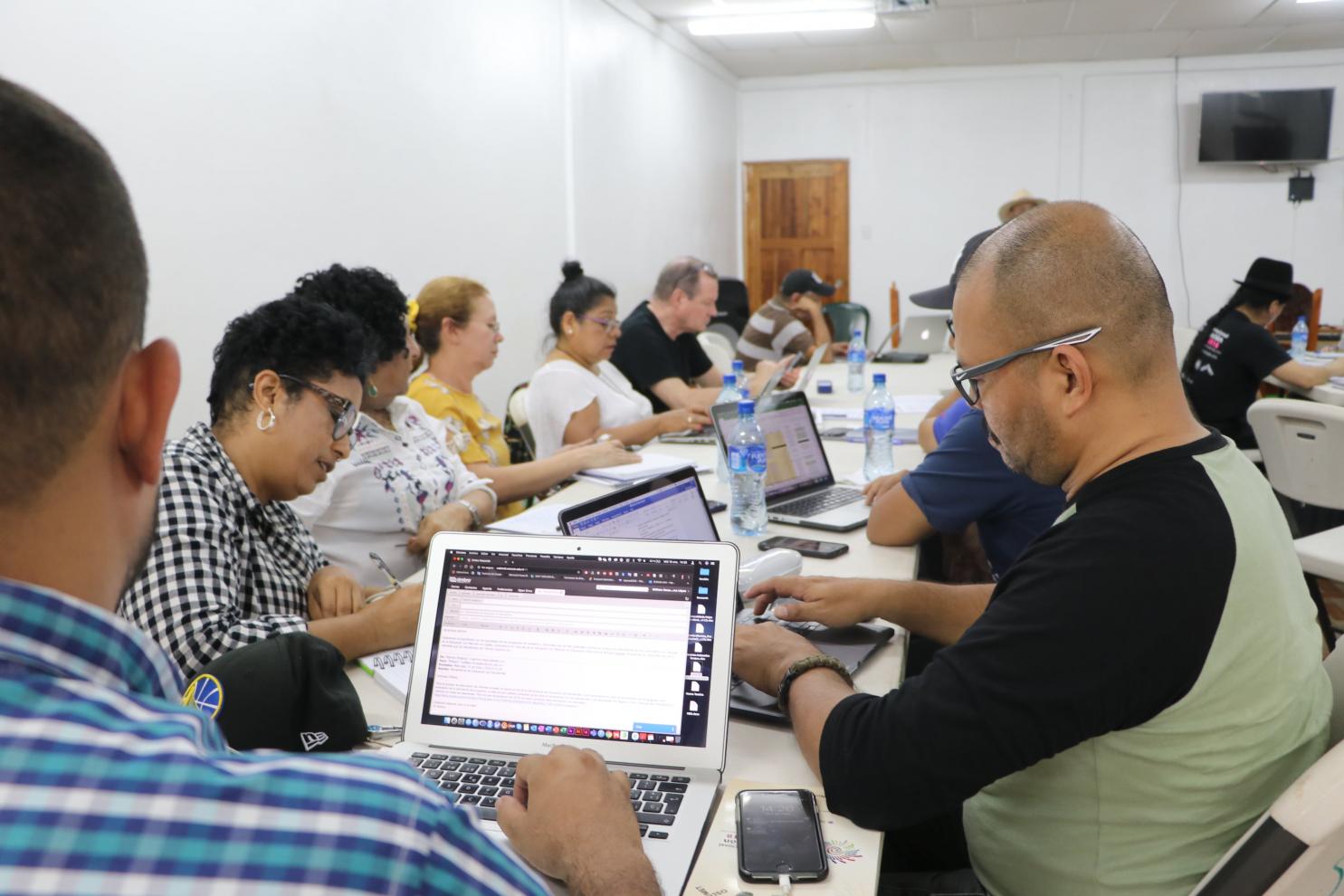
Sharing and dialogue
By: Juan Polanco Hernández
Continuing the Workshop for curriculum adequacy of the PhD Program in International Intercultural Studies of URACCAN, participants contribute and share their opinions and perspectives, in order to build and agree ideas to strengthen the profile of this process.
In this sense, the methodology used was the discussion and improvement of each element within the profile of the doctoral program, with contributions and comments containing the various perspectives from each experience, based on approaches, objectives, results and competencies, as well as curricular contents and study modules.
According to Daniel Mato, a researcher at UNESCO's International Institute for Education (Ielsalc), "Our definition of a whole must be by understanding, not by extension, we need to find a different form of definition for readers and the public to understand us in a more applied way," he commented on the purposes of the Doctorate.
Incorporate wide and diverse looks
In addition, all participants shared their thoughts and feelings regarding the curriculum of the doctoral programme of the URACCAN, making observations and contributions that strengthen the design and structure of the same, taking up intercultural and practical themes typical of the different peoples.
"Talking about good living is talking about social justice, Mother Earth, development, but if we don't see it with an intercultural perspective, we can't work it in a complete way and with that vision of our own," said teacher Bernardine Dixon, director of the Center for Multi-Ethnic Women's Studies and Information (CEIMM-URACCAN).
Under this same view, Dr. Maribel Duriez, a guest member of the academic committee and professor of the PhD in Intercultural Studies at URACCAN, referred to the incorporation of the intercultural gender perspective, as a fundamental axis of the curriculum mesh of this doctorate. "I believe that we must insist on the intercultural perspective of gender because where we are we must rescue and fight for our rights and that of the peoples," he said.
For her part, Tonija Hope Navas, director Ralph J. Bunche International Afairs Center, Howard University, United States; highlighted the importance of the PhD in Intercultural Studies, with the presence of students from different countries and disciplines. "Students in the program come from many disciplines. Then the mission of the doctoral program must be punctual and even with regard to international openness, so that it is understandable to all and generates recognition of what is to be shown," he said.
Interepismmic dialogue with intercultural gender perspective
Finally, perspectives and experiences were shared in the walk of cultivation and aging of Wisdoms and Knowledge (CCRISAC), debating and dialogue the processes lived by the peoples of Abya Yala and their own worldviews and identities, taking into account the contribution of the participants members of international organizations and institutions.
"Those who will assert these wisdoms and knowledge of CCRISAC are us, through this doctoral program because we play an important role in the development and transmission of these topics," PhD concluded. Eugenio López, vice-chancellor of URACCAN campus New Guinea.
- Log in to post comments
- 61 views
